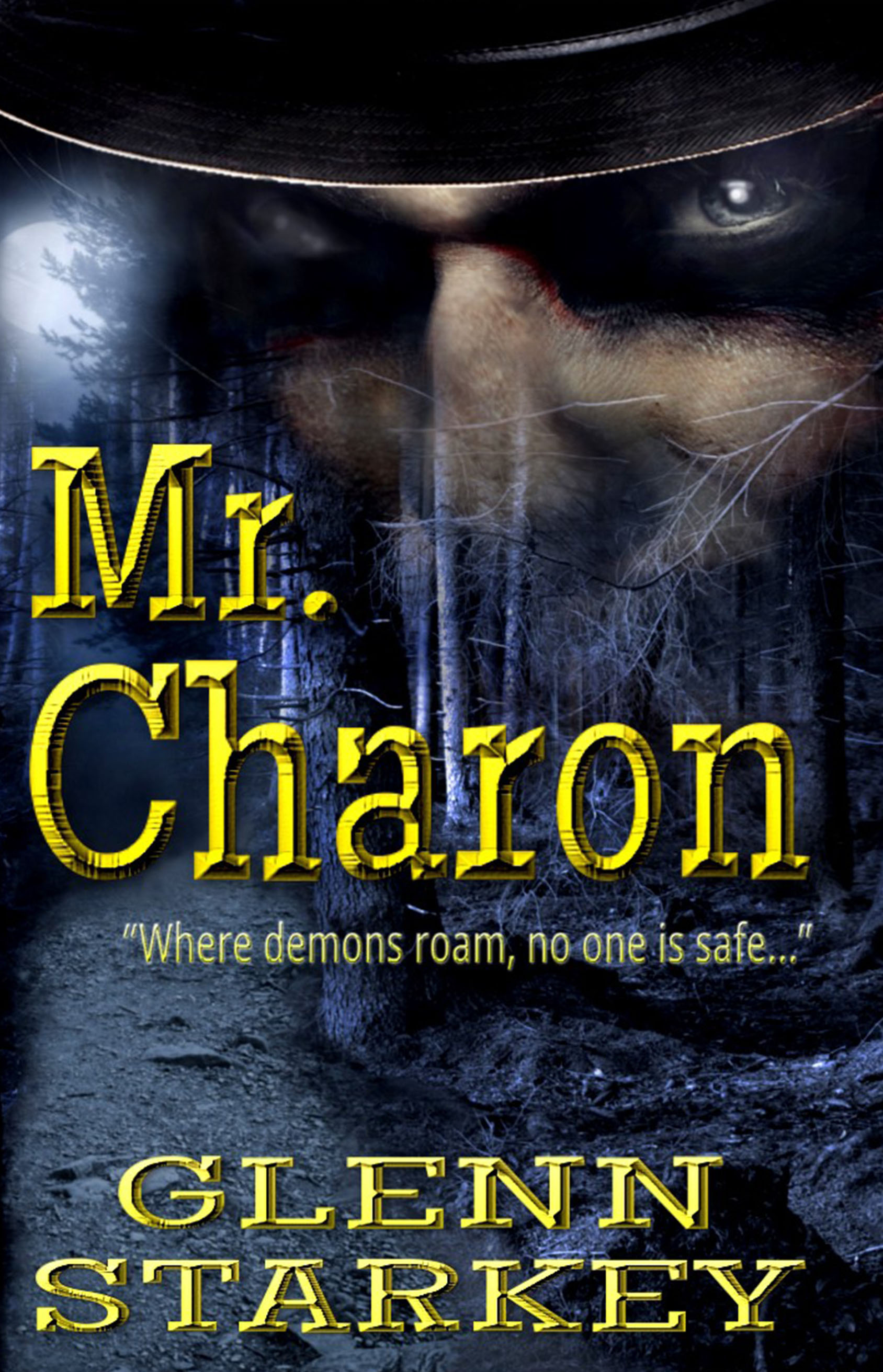
by Glenn | Jan 15, 2016 | General, Writing
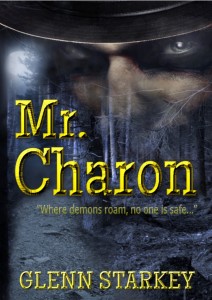 I was honored with an interview by the wonderful Belinda Witzenhausen, a writer, artist, Creativity Coach, and Editor in her own right. We discussed my latest book MR. CHARON, the inspiration and challenges of it as a Young Adult novel, my average writing day schedule, and wrapped it all up with a brief discussion of my soon to be released historical fiction, BLACK SUN.
I was honored with an interview by the wonderful Belinda Witzenhausen, a writer, artist, Creativity Coach, and Editor in her own right. We discussed my latest book MR. CHARON, the inspiration and challenges of it as a Young Adult novel, my average writing day schedule, and wrapped it all up with a brief discussion of my soon to be released historical fiction, BLACK SUN.
As I read the interview, Catching up with Author Glenn Starkey, I wondered if new writers would be encouraged by it, inspired to continue with their individual work, and hope to one day read their own interviews. Years ago I was in such a position. Working on my first novel, filled with hope, anxiety, and stress. Whenever I read an author’s interview and saw the dramatic covers of their multiple novels, I hoped to one day be in such a position.
Granted, I have yet to win the Nobel Peace Prize for Literature or be invited to meet the Queen of England to receive her personal accolades, but I feel good about the progress I’ve made to date. I still become excited when asked for an interview. In a few months I’ll have six novels out (with great covers) in various genres. My readership is constantly increasing, and I’ve won several awards and received excellent book reviews. Along the way I’ve learned from superb writers, received their mentorships and added new friendships. My entire experience, although with its share of disappointments and fatigue, has been a fantastic journey through life that I value.
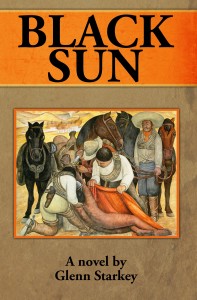
Yes, selling books and making money is the end product. Writing books is a business. But the underlying goal for me (and the majority of writers) is the sole creation of a novel that carries a reader away into a world of humor, drama, and suspense—something that I wrote which gives readers hours of entertainment. No reward is greater for me than to learn that I deprived someone of sleep because they were caught up in my novel and couldn’t lay it aside. To be told that a passage made a reader laugh or cry is exhilarating… The long, exhaustive hours of writing a novel suddenly become worthwhile.
I hope you will read the interview, as well as check out my various novels. I welcome your feedback, discussions, and especially your reviews. My readers become my friends and you add to the great experience of writing.
All the best,
Glenn
by Glenn | Jun 23, 2013 | interview, Writing
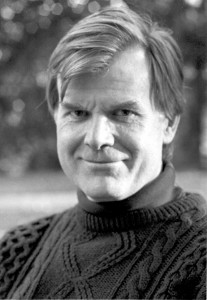
Author: Nicholas Guild
Years ago, as an aspiring writer, I read “The Assyrian” by Nicholas Guild. Since that day I have considered him one of the finest authors in the literary world—and my silent mentor of the craft. There are others who speak highly of Nicholas Guild as well…Publishers Weekly, the Associated Press, The New York Times Book Review, Book of the Month Club, The Library Journal and more, plus a long list of prominent newspapers. The list goes on, especially in international markets from Europe to Japan and Russia, but I’ll stop for now. Fast forward ahead though and today I’m honored to interview Nicholas Guild, and know him as a friend.
From thrillers, historical novels, and on to horror fiction, he has covered the realm of genres and provided novels for every reader’s enjoyment. His first novel was published in 1975 and, thankfully, we still have great works coming from him. In reviews about his novels you read what we all wish would be said about us: “…a master of timing, plot, and style…” “The most languid grace of his writings also sets the measured pace…” “…sentences are tight, well-constructed and an additional bonus, his plot and sub-plots cannot be faulted.” Formerly a Creative Writing professor at several universities, Guild now lives in Maryland.
So, this has been the shortest overview of an author whose accolades seem endless, yet that’s only part of what I want you to know about Nicholas Guild.
Last year I wrote an article about him, placed it on my website, and went on with life, never suspecting where that blog would lead. He read it, replied, and we’ve been corresponding ever since. In Guild I’ve noted extreme intelligence, yet a man who never thinks himself better than you. He is well published, far more than I could ever hope for in ten lifetimes, but he discusses writing with me as if I were a Nobel Peace Prize winner in Literature. We come from totally different backgrounds, discuss life in general, and banter about political views, yet, he treats me with the respect old friends extend one another even if they do not agree. He has complimented my work yet doesn’t spare truths about it (something I value highly in him.) I wish we had become friends years ago, but things in life seem to work out as they should, and now we are. Better late than never, I say. All said, though, Nicholas Guild is a good man. That’s as great a compliment as can be given here in Texas.
My gratitude to Nicholas Guild for the interview and sharing his experience with us. There’s something within the interview for everyone, and I hope you find food for thought.
Regards,
Glenn
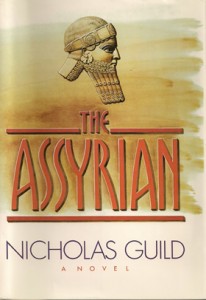
Q: With the evolution of book publishing—print versus ebook or audio, agent versus indie, publishing house versus indie—how does a new author determine their first path to take, such as to go for an agent, a publishing house, or remain an indie-author?
A: Granted, the publishing business has changed a lot with the advent of the ebook, but the key to selling a book—or anything else, for that matter—is publicity. People have to know that a book exists before they can buy it. And the sad fact of the matter is that advertising an ebook is a tough business. A print book has the advantage that it will go out to prospective reviewers and that, by virtue of the fact that some publisher has bought it, some pre-selection can be assumed to have taken place. Anybody can self-publish an ebook, with the result that there are vast quantities of very junky ebooks. So how does an ebook author bring his or her work to the attention of people who are prepared to pay money to read it? Newspapers and magazines print reviews and, at present, they aren’t much interested in ebooks. My advice is to try to sell your book to a hardcopy publisher first, and this is easier to do with an agent than without. Agents at least know who to go to, so they are worth their percentage.
Q: Although you have an agent and have been published through major houses, your first horror/paranormal novel “The Moonlight” was published solely as an ebook as if you were an indie-author. What were your thoughts on going this route rather than taking it to a publishing house?
A: The honest answer is that my agents didn’t like the book, so I let it sit on my hard disk for nearly twenty years and then I reread it, came to the conclusion that my agent was wrong, and decided that, what the hell, I’ll do it myself as an ebook. In a sense, it was an act of desperation. I thought it was a good novel and I wanted it out there. Certainly, in the current market, I would have preferred to publish it in hardcopy first.
Q: What do you consider key habits writers should establish?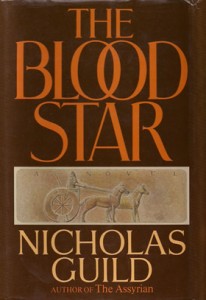
A: If you want to be a writer you should write every day, and write with care. Also, review your work regularly after enough time has passed that you’re no longer quite so in love with it and can look at it with cold eyes, as if someone else had written it. And read as much of the best work in your genre that you can find. Good models, along with the habits of regularity and self-criticism, are essential.
Q: While teaching, you had a lengthy hiatus from the publishing world. What obstacles or difficulties overall, if any, did you encounter upon your return to writing? Smooth transition back to writing or some form of personal search to find your ‘voice’ again?
A: Essentially, I found I was starting over, at least as far as my relationship to the publishing world was concerned. But during my “hiatus” I never stopped writing. I just couldn’t seem to get past the first several chapters of any project I started. I think as much as anything it was a failure of nerve, of confidence. Now I have several started novels, one of which, titled Blood, is already finished. And I’m charging ahead.
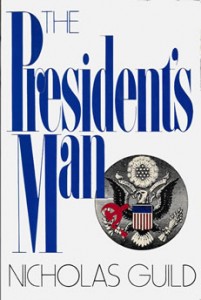 Q: Regardless of the genre, every author has research to perform for their project. Any helpful pointers? Any pitfalls to watch out for?
Q: Regardless of the genre, every author has research to perform for their project. Any helpful pointers? Any pitfalls to watch out for?
A: The only pitfall in research that I can think of is not to do it. You have to do your homework. This is particularly true in historical fiction, which is my primary area. I just finished a novel set in Greece in the 4th Century B.C. (tentatively titled The Spartan Dagger and being brought out by Tor Books—I just couldn’t resist the plug), and you have to know the details of life in that period. You can’t afford mistakes because if you make one, and the reader catches you at it, it shatters the illusion. So do a lot of reading.
Q: How connected do you become to a novel you are writing? Ever reach a point of addiction whereby you feel you must write at every opportunity or can you walk away and return to your project as you wish and still have the tempo and flow of the work?
A: Once I’ve started a book, I almost have to work on it every day. If I miss a day I tend to lose my nerve and it will take me a while to get back into it. This is just my own, no doubt neurotic, pattern. If I’m really into a book I start dreaming about it, and some of the dreams are really strange. When I was writing The Assyrian I dreamt that I ran into Sennacherib behind the counter of a dry cleaning store, where he told me, “you know, you weren’t quite right about. . .” Part of writing a novel is sustaining a fantasy, and that can do funny things to your head.
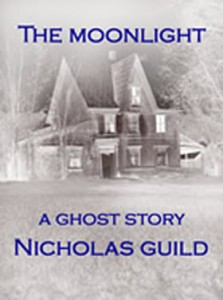
Q: Has any other profession ever come to mind that you might enjoy if you were not an author or had been a Creative Writing professor?
A: I don’t have any choice about being a writer. I have to write. It’s an obsession. But I was an English teacher for several years and I enjoyed that. Mark Twain once said about being a riverboat pilot, “I loved that profession, far more than any I have followed since.” I almost feel that way about teaching, but not quite.
Q: What do you feel are the worst or most common mistakes new or established authors make?
A: I think that both the worst and more common mistake that any writer makes is to fall in love with his own words. Scott Fitzgerald once said that every story has to go through three editing processes: one for grammar, one for style and one to cut out all the immortal stuff. When you stop being critical of your own work, you’re lost.
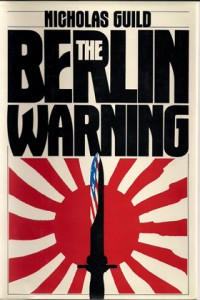 Q: How does the idea for a novel come about? What are your creative processes?
Q: How does the idea for a novel come about? What are your creative processes?
A: I have no idea. Sometimes an idea for a novel will just drop into my lap out of nowhere. Sometimes I’ll start with a gesture or an idea for a scene and the novel will grow up around that. Sometimes the story will have to marinate for years before I’m ready to write it. Believe me, the “creative process” is as much a mystery to me as to anyone else.
Q: New or aspiring authors often mistakenly place well established authors, such as yourself, on pedestals, and believe your work flows like honey and your lives are far different than the “everyday man.” What is an average day like for Nicholas Guild, a best-selling, international author? Any sort of routine or schedule you follow to balance life and writing? Or is your life truly champagne and caviar?
A: It sure as hell isn’t champagne and caviar. I work at writing as a job and I work at it seven days a week. A writer’s life is quiet and isolated. You have to be prepared to spend large stretches of time alone. Aside from that, I live like everybody else. It’s a mistake for a writer to imagine that he’s significantly different from other people. In the first place it isn’t true and in the second it isn’t good for your art to cut yourself off from normal life.
Q: Are there any special traits or talents which set authors apart from each other?
A: It goes without saying that a writer has to have a certain facility with language, which is probably not any difference in kind from having musical talent or a talent for fixing machines. Beyond that, in my experience most writers, at least writers of fiction, are neurotic and insecure. I have a theory that we all live mainly in fantasy until we’re about four or five, and then most people start living in the real world and the fantasy machine sort of shuts down. A writer keeps creating an imagined life for himself/herself until he/she is old and gray. Why? Probably because the writer-in-embryo doesn’t find the real world all that congenial, and the situation doesn’t improve with time. I used to tell my creative writing students, “if you find this isn’t for you, congratulations. It just means that you had a happy childhood and are reasonably well adjusted.” Fiction writing doesn’t proceed out of anything healthy.
Q: When someone approaches you and says, “I want to write a book. Where should I begin or what should I do first?” What would be your recommendation?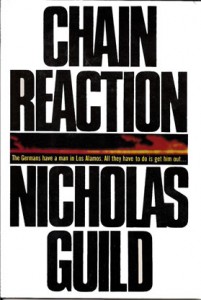
A: My recommendation would be, start writing. Just get stuff down on paper. It will either begin to take shape in your mind or it won’t. Writing comes first, thinking comes later. In this business there are no magic formulas.
Q: The Internet, Social Media and Networking. These have had profound impact on the publishing world. What are your thoughts on them or the future of publishing?
A: Obviously, the internet and its components are the wave of the future. In a few years hardcopy books will be a niche business. The problem is that the internet is not really set up to support something like the book business, at least not yet. We don’t have the equivalent of, say, The New York Times Book Review, where the reviews command real respect. There has to be some sort of selection process that keeps out the books that are obvious trash—although God knows enough hardcopy books are obvious trash. The internet book business needs to develop a marketing structure. I have no doubt this will happen, but it hasn’t happened yet.
Q: Who or what acts as the sounding board for your novels when you have finished a first draft and want feedback?
A: I show drafts to such friends as are willing to read them, and of course I show them to my agent, who is very good at finding what is wrong—too good for comfort sometimes.
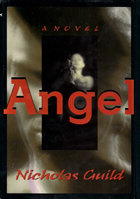 Q: You have a large European readership, as well as in America. Do you have any projects or novels on the horizon that you can share with us?
Q: You have a large European readership, as well as in America. Do you have any projects or novels on the horizon that you can share with us?
A: I have one I’m working on at the moment which is a sort of romance for grownups. I always hate to describe the plots of my projected stories because they always sound so goofy, but it is set in the 1870’s.
Q: Where can people go to learn more about you and your writings, as well as purchase your novels?
A: Try my website, which I am sorry to say I wrote myself: http://www.nicholasguild.com. I try to have an essay on some aspect of fiction on my home page and you can read reviews and what amounts to flap copy of the novels I have available as ebooks. The ebooks themselves are available at most of the important outlets like Amazon, Barnes & Noble and Apple.
Comments are welcomed and we would love to hear your thoughts about this interview!
Want to know more about Nicholas Guild, his works, coming novels, or contact him? Try these links:
Website –http://NicholasGuild.com
Facebook – https://www.facebook.com/AuthorNicholasGuild
Twitter – https://twitter.com/NicholasGuild
E-Mail – Nicholas.Guild@gmail.com
Amazon – http://www.amazon.com/Nicholas-Guild/e/B000APF41U/ref=ntt_dp_epwbk_0
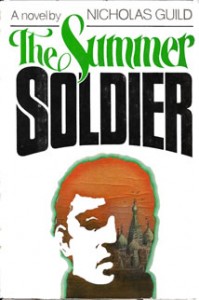
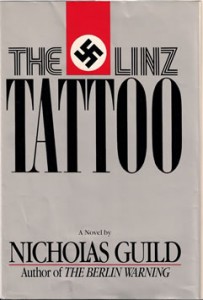
by Glenn | Apr 9, 2013 | Life
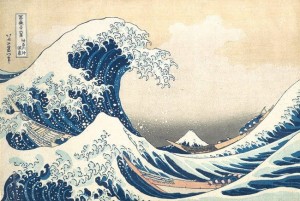 “Burning the candle at both ends—and running out of candle!”
“Burning the candle at both ends—and running out of candle!”
Well, that’s how I have felt these past five months. I finished my latest novel AMAZON MOON in December and a good friend, international best-selling author Nicholas Guild read the work and provided excellent recommendations. All I have to do is find enough hours in the day to make the modifications he suggested then the novel will be ready to move into publication.
The problem is that as Nick was receiving AMAZON MOON, I was asked to be the Security Director for a major industrial port. The previous Security Director had left for another job and they needed someone to handle operations and their large number of federal grant projects. Having retired as a Security Manager of a global oil corporation, this wasn’t my first rodeo. I refused the position full-time and said I would work for six months until they found a replacement. I also continue (it’s in my contract to allow me so) to volunteer working with school children each Tuesday to assist them with their reading skills. And (of course there’s more), along with my writings, I am the Secretary of my Masonic Lodge (a full-time position which I do in my “spare” time.)
I had a perfect storm of events collide. Suddenly, my book was ready to finalize, and I was up to my ears in a super tight schedule. Working with federal grant projects is about as enjoyable as performing a “Do-It-Yourself Root Canal,” plus the remainder of the security operations cannot be ignored. I have two Monday’s every week because I work Monday, am off Tuesday to work with the school kids, then return to work Wednesday (which feels like my second Monday because I’m trying to catch up from what I missed Tuesday.) I’m not totally off work on Tuesdays either because I still 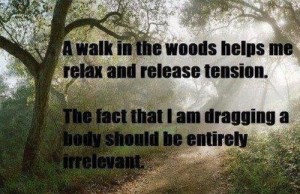 receive cellphone calls and have to jump on my laptop throughout the day to keep my workload flowing. And somewhere between all of that, my lodge duties come into play, plus I must write a monthly newsletter…more paperwork headaches.
receive cellphone calls and have to jump on my laptop throughout the day to keep my workload flowing. And somewhere between all of that, my lodge duties come into play, plus I must write a monthly newsletter…more paperwork headaches.
As every author knows, maintaining a social media presence demands allotting time per day to various sites (particularly your own website.) If you don’t keep your published works out before the public, you are quickly forgotten. Fortunately, my author friends help keep me alive in those arenas by giving me an occasional plug. The indie community is truly wonderful! People on the opposite side of the world that you’ve never met become great friends.
But as all storms do, this one in my life shall pass too. At the end of May, my contract as Security Director will be complete. The school year will come to a close as well. And the lodge work, well, that will remain. Most importantly, I will return full force to my writings, finalize AMAZON MOON then begin the novels still patiently waiting within me to be written.
Now, if I can just find enough candle to burn until the storm passes…
GLENN
by Glenn | Oct 24, 2012 | Writing
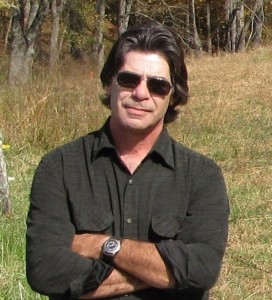 Micheal Rivers is best known as being a genuinely talented author of paranormal thrillers and true friend to the indie world. I’ve read several of his novels, truly enjoyed them, and I am quite fortunate to personally know such a fine gentleman. Previously, Nicholas Guild, a best-selling, international author, was kind enough to write a guest post for my site’s readers. Today, I am proud to include one by Micheal Rivers in my treasure chest of writing jewels. Whether you’re a seasoned novelist or novice, there is definitely something to learn from Mr. Rivers’ article.
Micheal Rivers is best known as being a genuinely talented author of paranormal thrillers and true friend to the indie world. I’ve read several of his novels, truly enjoyed them, and I am quite fortunate to personally know such a fine gentleman. Previously, Nicholas Guild, a best-selling, international author, was kind enough to write a guest post for my site’s readers. Today, I am proud to include one by Micheal Rivers in my treasure chest of writing jewels. Whether you’re a seasoned novelist or novice, there is definitely something to learn from Mr. Rivers’ article.
A WRITER’S DILEMMA
Micheal Rivers
A writer is a wonderful individual. Throughout the centuries mankind has borrowed, purchased and cajoled anything they possibly could to either educate themselves or entertain themselves through books. Whether you are highly educated or you are just a beginning reader you will find enjoyment within the pages of a book. 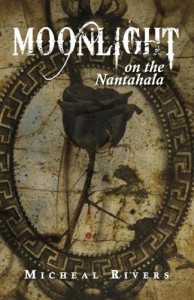
Let’s take a look at writing and how it is accomplished. I will use the works of fiction for this topic. Fiction is tool for the entertainment of readers, but it too has rules that need to be followed to be successful.
A novice writer may or may not realize how much preparation goes into a single work of fiction. Just as if you are writing non-fiction you have to research your subject matter. For every great work of fiction lies the grain of truth. Poor research on your subject will carry you into a story that is not plausible in any state and will destroy any efforts you have put into the book very quickly.
In your research the characters must remain in their original state, such as their manner of speech, or the way they conduct themselves. A sudden change in the character’s development will result in the destruction of what you have already introduced your reader to. The reader will keep this in mind and begin to automatically distrust the rest of the story regardless of its worth. This will come back to you when a book is reviewed by the public. Which would you rather have, a four or five star review or a two star stating your story is good but the characters lack substance?
A well written story will engross the reader to such a point minor mistakes may be overlooked to an extent. This being said I research my books almost to a fault. Trust me; you will still have readers to disagree due to their lack of research about what they doubt concerning what you have written.
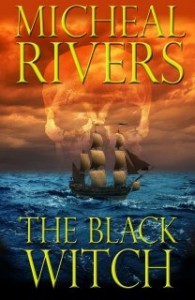 Many of your best writers place themselves in the story written from a witness’s point of view. You must distance yourself from that aspect unless you are capable of writing the story with a nonpartisan aspect. It is difficult but not impossible for newer writers in the field.
Many of your best writers place themselves in the story written from a witness’s point of view. You must distance yourself from that aspect unless you are capable of writing the story with a nonpartisan aspect. It is difficult but not impossible for newer writers in the field.
One of the biggest mistakes a new writer will make is believing he has written the perfect novel and will be beloved among his fellow authors. Usually his editing in his zeal for perfection is his death knell. A professional editor is a mandatory necessity. Although you have done this you will still find minor mistakes, the more eyes on your manuscript the better off you are. This is not saying release it to the public for scrutiny, far from it. Your objective is to give the reader the best story you possibly can and retain your style. Some editors will attempt to change things in your story which not only does not fit and cause hours of rewrites, but will also cause you to lose what your readers love about your stories. If your first release is poorly edited because you trusted your publisher, it is not the fault of the publisher. The final release is your responsibility and that story will come back to haunt you for years to come.
Do your words flow across the page or do they read as a conglomeration of statements? It will make a very large difference as to how your story will be perceived by a wide audience. You must remember the reader cannot read your thoughts or see what you are envisioning. You must lead him by the hand into a world you have created. Let him see what you see. Do your characters and settings induce emotional responses? This is very important also and must coordinate with the flow of the sentences.
I have dozens of people ask me who the protagonist is in a story. I neither build characters or protagonist. I, personally consider myself to build people, someone you can identify with if necessary. A person in a story cannot carry the story alone, just as in real life there is always somebody to share the burden in some form. This is only one point of view and I am sure there will be those who differ in opinion. I am happy with that; it makes the world a little brighter.
 If you succeed in getting the reader to understand your character, good or bad, you have succeeded in bringing the character to life. Written correctly he or she can become as three dimensional as you wish them to be. Rhyme and reason will take you far.
If you succeed in getting the reader to understand your character, good or bad, you have succeeded in bringing the character to life. Written correctly he or she can become as three dimensional as you wish them to be. Rhyme and reason will take you far. 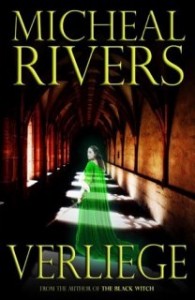
Visit Micheal Rivers site at http://www.MichealRivers.com to learn more about him.

by Glenn | Aug 26, 2012 | Writing
Glenn’s Note: I have always stated Nicholas Guild is one of the few select authors I consider as my mentor of the writing craft. After all, one should choose the best to learn from. He’s been 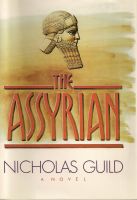 writing since 1975, has been published around the world with many of his works being international bestsellers, and as Publishers Weekly described him, is “…a master of timing, plot and style.” From The New York Times Book Review to the Washington Post, Nicholas Guild has received accolades aspiring writers dream of, and published authors wish for. I’m honored to present this article written by him for my website. His generosity in setting time aside to do so during his hectic schedule is truly appreciated. There is much to learn from my friend and I hope you will enjoy this as I did.
writing since 1975, has been published around the world with many of his works being international bestsellers, and as Publishers Weekly described him, is “…a master of timing, plot and style.” From The New York Times Book Review to the Washington Post, Nicholas Guild has received accolades aspiring writers dream of, and published authors wish for. I’m honored to present this article written by him for my website. His generosity in setting time aside to do so during his hectic schedule is truly appreciated. There is much to learn from my friend and I hope you will enjoy this as I did.
 THE CHARACTER OF CHARACTER by Nicholas Guild
THE CHARACTER OF CHARACTER by Nicholas Guild
When I was teaching literature I had a colleague who liked to say, “There are no characters in fiction, only words,” and at the most literal level he was, of course, correct. A novel is merely another species of rhetorical performance, and when we read a story nothing happens in the world outside our nervous systems. We are only processing words.
The problem is that my colleague’s maxim is only literally true. It does not correspond to the ways people, both readers and writers, experience fiction. There is what Coleridge called “the willing suspension of disbelief.” We know, for example, that Elizabeth Bennett and Darcy are not real people and therefore they never actually fall in love, yet we always experience relief and pleasure when at last they come to a right understanding of each other. When we talk about any particular novel or story we talk about the characters as if they were real because on some level they are real for us. There is even a certain amount of neurological evidence that readers experience fiction in much the same way that we all experience real life, and with something like the same intensity. 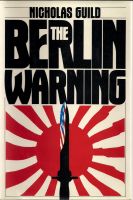
And when we talk about characters in fiction we are not far from the way we use the word “character” in real life. For instance, when we describe some real person as a “character” we are referring to a bundle of behavioral quirks that distinguish that person. Our impression of that person is defined by peculiarities of speech, dress, behavior, appearance, etc. which he or she exhibits. Thus in our imagination Theodore Roosevelt always has pince-nez glasses, a walrus moustache and, when he smiles, enormous teeth—and he is always describing things as “bully”.
Comic characters frequently have “character” in this sense. Mr. Micawber in David Copperfield always speaks with a comic formality which is instantly recognizable and is always waiting for “something to turn up.” Mr. Collins in Pride and Prejudice is always expatiating on the wealth, grandeur and “condescension” of his patroness Lady Catherine de Bourgh. Mammy Yokum in Li’l Abner of blessed memory always smokes a pipe, ends every discussion with the words “Ah has spoken!” and could have beaten Jack Dempsey to a pulp. Such characters are usually what E.M. Forster described as “flat”—two dimensional and with no psychological depth, no more than the sum of their mannerisms.
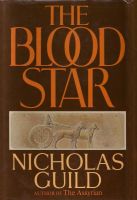 Of course not all flat characters are comic. Television abounds with heroic types who are essentially flat. My personal favorite was always Steve McGarrett of Hawaii 5-O (if anyone remembers that series). He had a vocabulary of about four words—“Book ‘em. Murder One!”—and it is impossible to imagine what his childhood would have been like. But generally speaking we expect non-comic characters in fiction to have a little more depth. To use Forster’s term, we expect them to be “round”.
Of course not all flat characters are comic. Television abounds with heroic types who are essentially flat. My personal favorite was always Steve McGarrett of Hawaii 5-O (if anyone remembers that series). He had a vocabulary of about four words—“Book ‘em. Murder One!”—and it is impossible to imagine what his childhood would have been like. But generally speaking we expect non-comic characters in fiction to have a little more depth. To use Forster’s term, we expect them to be “round”.
Round characters are those we can imagine having an inner life. They are allowed, even expected, to exhibit contradictions. They are human the way we are human.
But to my mind there is one possible difference. Our sense of “character” in fiction is in many ways close to another way we use the word in real life, which is essentially moral. We speak of people as possessing “character” as an attribute, like eye color. George VI of England showed “character” during World War II by identifying himself personally with the goal of victory. He refused to let his family seek safety in Canada and he made it clear he would not come to any kind of terms with the Germans, even if England were overrun and occupied. He was prepared, apparently, to fight to his dying breath, and thus he revealed—or appeared to reveal—the core of his nature.expected, to exhibit contradictions. They are human they way we are human.
It is open to question whether any of us really have such unified personalities. Perhaps all we have are random clusters of impulses. I don’t pretend to know. But such unity is precisely what we expect to find in fictional characters.
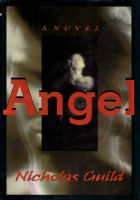 Of course fictional characters have the advantage of being knowable in a way real people simply are not.
Of course fictional characters have the advantage of being knowable in a way real people simply are not.
Our knowledge of the external world, and that includes our knowledge of other people, comes through the senses. We see other people, we hear them, we touch, smell and sometimes 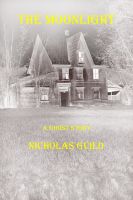 even taste them. Yet we are constantly being blindsided by our fellow mortals and discovering that the person we thought we knew doesn’t exist, is actually another sort of person altogether, and the reason this happens is not difficult to discover.
even taste them. Yet we are constantly being blindsided by our fellow mortals and discovering that the person we thought we knew doesn’t exist, is actually another sort of person altogether, and the reason this happens is not difficult to discover.
What do we actually know about anyone else’s inner life? Only what they choose to show us, or let slip—in other words, a highly edited version.
But characters in fiction are open to us. The author, who created them, tells us what they are thinking, sometimes even gives us a transcript. Their desires and anxieties are, quite literally, an open book to us. Therefore it is possible for us to know that core we think of as the essence of each person’s private humanity.
Thus, while we only intermittently judge each other, our moral judgments of characters in fiction are relentless. It is a point writers forget at their peril: readers read from within the context of their most conservative morality.
It is also worth remembering that controlling the sympathy of a reader is a complicated business. Think of the reader as resembling a bull wearing blinders and a ring in its nose. It can only see straight ahead, and straight ahead is a direction you control. The writer creates an imaginary world and all the reader can experience of it is what he or she is shown. The writer is in control, so he or she had better be careful.
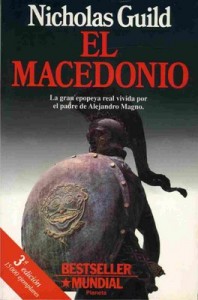 A student of mine once wrote a story about the interior life of a girl in a coma. The problem was that the girl had reached this state by mixing drugs and alcohol, which my student seemed to regard as the moral equivalent of being struck by lightning. It took me a while to convince her that the reader would judge her character negatively and that this would affect the impact of the story in ways she hadn’t anticipated and didn’t want.
A student of mine once wrote a story about the interior life of a girl in a coma. The problem was that the girl had reached this state by mixing drugs and alcohol, which my student seemed to regard as the moral equivalent of being struck by lightning. It took me a while to convince her that the reader would judge her character negatively and that this would affect the impact of the story in ways she hadn’t anticipated and didn’t want.
That was the sort of oversight which hopefully is restricted to the very young (my student, as I remember, was nineteen). Every writer wants the reader to be on the side of their hero or heroine. But the same considerations apply when you are creating a villain.
Villains are tough. If you make them too evil the reader will lose interest. Thus you have to make your villains credibly human. Why do they do all those terrible things? What do they want? The essence of the thing is that everyone has a point of view, even Jack the Ripper and Adolf Hitler, and real people are more interesting than monsters. The reader needs at least to understand the bad guy, so always provide him with a backstory.
End of sermon.
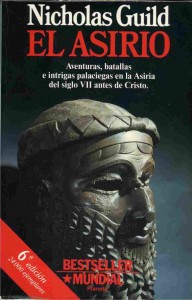

 I was honored with an interview by the wonderful Belinda Witzenhausen, a writer, artist, Creativity Coach, and Editor in her own right. We discussed my latest book MR. CHARON, the inspiration and challenges of it as a Young Adult novel, my average writing day schedule, and wrapped it all up with a brief discussion of my soon to be released historical fiction, BLACK SUN.
I was honored with an interview by the wonderful Belinda Witzenhausen, a writer, artist, Creativity Coach, and Editor in her own right. We discussed my latest book MR. CHARON, the inspiration and challenges of it as a Young Adult novel, my average writing day schedule, and wrapped it all up with a brief discussion of my soon to be released historical fiction, BLACK SUN.













 receive cellphone calls and have to jump on my laptop throughout the day to keep my workload flowing. And somewhere between all of that, my lodge duties come into play, plus I must write a monthly newsletter…more paperwork headaches.
receive cellphone calls and have to jump on my laptop throughout the day to keep my workload flowing. And somewhere between all of that, my lodge duties come into play, plus I must write a monthly newsletter…more paperwork headaches.













